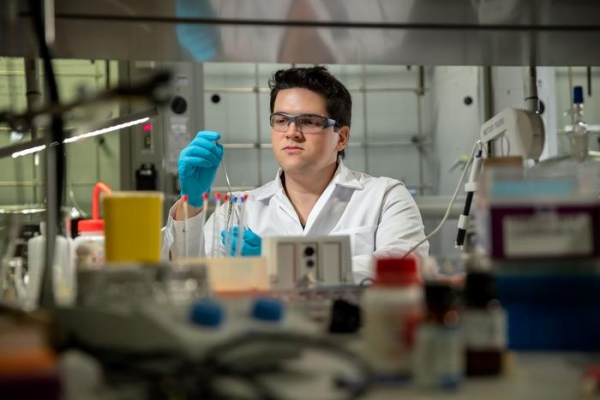A team of researchers from Jilin University, NYU Abu Dhabi’s Smart Materials Lab, and the Center for Smart Engineering Materials, led by Professor of Chemistry Pance Naumov, has developed a new crystalline material that can harvest water from fog without any energy input.
The design of the novel type of smart crystals, which the researchers named Janus crystals, is inspired by desert plants and animals, which can survive in arid conditions. Desert beetles and lizards, for example, have evolved to develop surface structures that have both hydrophilic and hydrophobic areas and effectively capture moisture from the air. Water is attracted to the hydrophilic areas and droplets are accumulated and transported through the hydrophobic areas.
The findings are presented in the paper titled “Efficient Aerial Water Harvesting with Self-Sensing Dynamic Janus Crystals,” recently published in the Journal of the American Chemical Society. The researchers chose three chemically versatile organic compounds from which they grew elastic organic crystals. They then tested how each of these materials interacted with the airborne water, which led to the creation of the new water-collecting materials, Janus crystals, that contain both hydrophilic and hydrophobic regions on the surface level, one to capture water and one to transfer it to a receptacle for collection. The Janus crystals capture humidity from humid air with the highest-to-date water collection efficiency. The crystals’ narrow and light-translucent structures enable researchers to monitor the collection and condensation of fog droplets in real time by using light.
Read more at: New York University Abu Dhabi
Center for Smart Engineering Materials - 01 (Photo Credit: NYU Abu Dhabi)
Sci/Tech Top Stories Climate Energy

